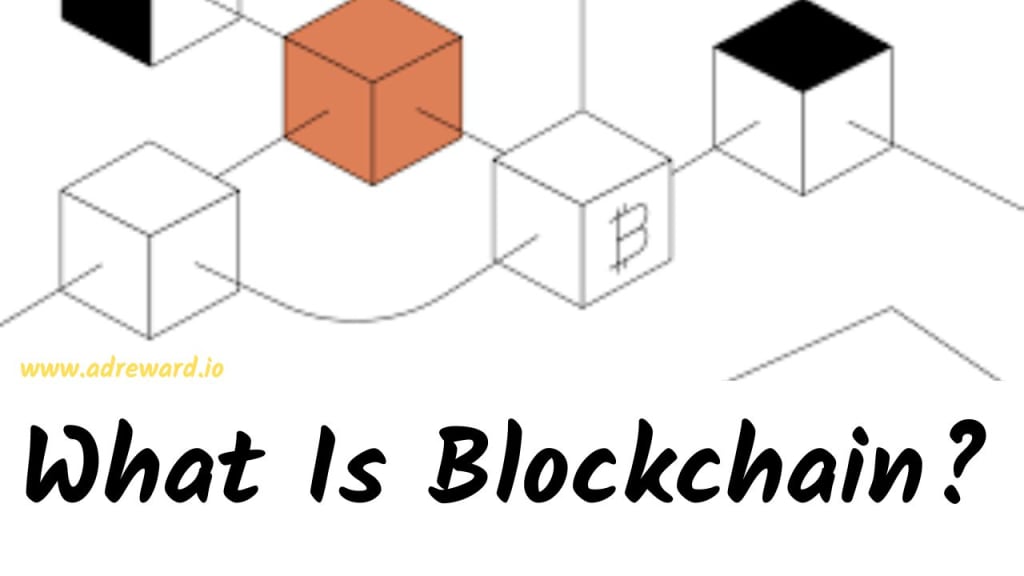
Blockchain is a digital, decentralized, and immutable ledger that allows multiple parties to transact with one another without the need for a centralized authority or intermediary. At its core, a blockchain is a series of blocks that are cryptographically linked together to form a secure and tamper-proof record of transactions.
The first and most well-known use of blockchain technology is the cryptocurrency Bitcoin, which was created in 2009. However, blockchain technology has since expanded to a range of different industries, from finance and healthcare to supply chain management and voting systems.
One of the key benefits of blockchain technology is its ability to provide a transparent and secure record of transactions. Because each block in a blockchain is cryptographically linked to the block that came before it, it is virtually impossible to alter or delete any transaction once it has been recorded on the blockchain.

ADreward(AD)Gate.io startup listing after free airdrop, Huobi Prime voting Follow Us:)
Website: https://adreward.io
Telegram: https://t.me/ADreward
Twitter: https://twitter.com/adreward
Another key feature of blockchain technology is its decentralized nature. Instead of relying on a central authority to validate transactions and maintain the integrity of the ledger, blockchain technology uses a network of computers and nodes to verify and validate each transaction.
In this way, blockchain technology allows for peer-to-peer transactions that are both secure and efficient. Because there is no need for a centralized authority to validate transactions, blockchain technology can help reduce transaction costs and improve the speed and efficiency of transactions.
There are several different types of blockchain technology, including public blockchains, private blockchains, and consortium blockchains. Public blockchains, like Bitcoin and Ethereum, are open to anyone and are typically used for decentralized applications and cryptocurrency transactions.
Private blockchains, on the other hand, are used within a closed network of users and are typically used for business applications like supply chain management or financial transactions. Finally, consortium blockchains are used by a group of organizations that have agreed to work together to maintain a shared ledger.
One of the key challenges facing the adoption of blockchain technology is the scalability of the technology. Because each transaction on a blockchain must be validated and recorded by a network of nodes, the process can be slow and inefficient. However, new technologies like sharding and sidechains are being developed to help address these scalability issues.
Another challenge facing the adoption of blockchain technology is the lack of standardization and regulation. Because blockchain technology is still a relatively new technology, there are few established standards or regulations in place to govern its use. This can make it difficult for businesses and organizations to know how to use blockchain technology in a way that is both compliant and effective.
Despite these challenges, many experts believe that blockchain technology has the potential to revolutionize the way that transactions are conducted and recorded. By providing a transparent and secure ledger that can be used by multiple parties without the need for a centralized authority, blockchain technology has the potential to unlock new levels of efficiency and trust in a wide range of industries.
Conclusion:
In conclusion, blockchain is a decentralized, digital ledger that records transactions in a secure, transparent, and immutable manner. It is based on a distributed network of nodes that collectively validate and verify transactions, eliminating the need for a centralized authority. Blockchain technology has the potential to revolutionize many industries by providing a more efficient, secure, and cost-effective way of conducting transactions, managing records, and exchanging value. Its applications range from cryptocurrency to supply chain management, voting systems, and more. While blockchain is not a panacea and faces challenges such as scalability and interoperability, its potential benefits are too significant to ignore. As the technology continues to evolve and mature, it will be exciting to see how it transforms various industries and the world around us.





Comments
There are no comments for this story
Be the first to respond and start the conversation.